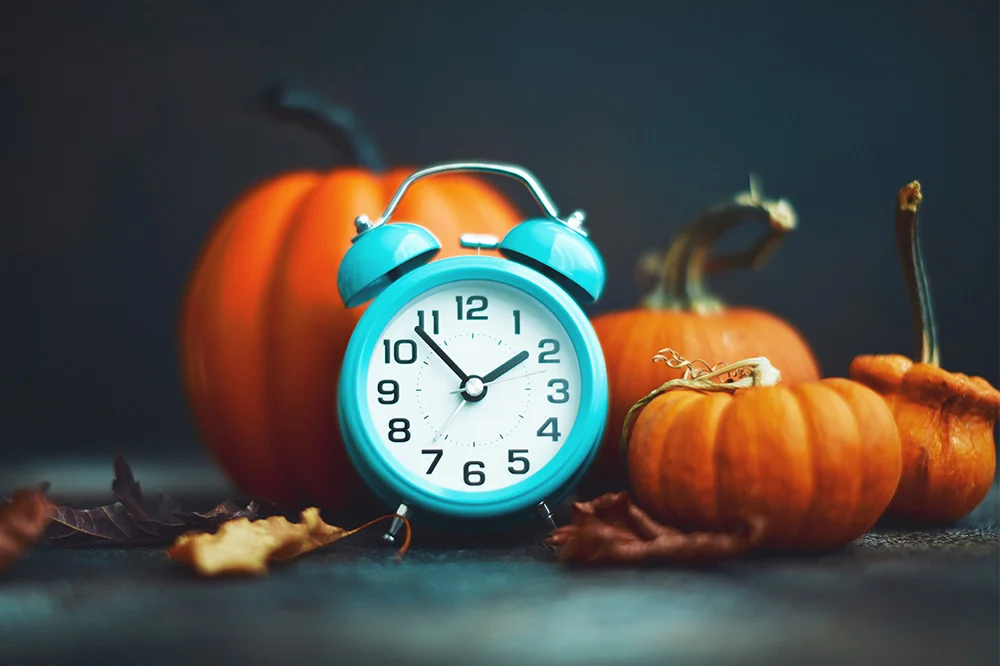
Daylight saving time has been a thing as long as most of the people currently living in the United States have been alive. Every year in the spring and in the fall Americans adjust their clocks to either spring forward an hour or fall backwards — losing or gaining an hour of sleep respectively.
While daylight saving time has been a major part of our lives since it was created back in 1918, lawmakers and sleep experts alike are thinking about what it could mean for Americans if we undid DST. (1)
Daylight saving time was originally created back in 1918 to conserve energy during World War I, and while the measures were dropped after the war ended, several states continued practicing the time saving measures. The practice was reinstated nationally a few more times before becoming law with the Uniform Time Act in 1966. (1)
However, the time saving measures have been mired in controversy, with people calling the impact of daylight saving time on our sleep into question. It seems that the practice does have an impact on our sleep and health in both the long term and the short term, since throwing off one’s sleep schedule can lead to some of the nastier symptoms of sleep deprivation. (2)
Read on if you’re curious to find out about why people are calling for daylight saving time to come to an end, and what they are proposing instead.
Are There Any Laws About Ending Daylight Saving Time?
NPR reports that back in March 2022, the United States Senate unanimously passed the Sunshine Protection Act, which would see the entire country shift to year-round daylight saving time. However, despite the bill’s popularity in the senate it failed in the House of Representatives. (3)
The goal behind the Sunshine Protection Act is to do just about everything, NPR reports that when the bill was first debated in a subcommittee, experts said permanent daylight saving time would “save lives, reduce crime, conserve energy, and improve health.” (3)
Even though the process of changing daylight saving time is slow at the federal level, some states and territories have sought to take the matter into their own hands. Hawaii, Arizona, American Samoa, Guam, Puerto Rico, the Virgin Islands and the Northern Mariana Islands don’t currently participate in daylight saving time. (3)
According to NPR, the House rejected the bill because of other national priorities, but also because of how the bill is structured. Even though most people agree that it’s high time we stopped leaping forward and jumping backwards in the spring and the fall, there are some pretty hot debates about what should replace daylight saving time. (3)
What Could Replace Daylight Saving Time?
There are two options that we could adopt to replace daylight saving time. First, we could switch to permanent daylight saving time. This shift would take place when we would ordinarily switch our clocks an hour forward in the spring, but instead of moving them back in the fall, we would just continue with the clocks as they are.
The other option would be to adopt standard time. So, we would ordinarily set our clocks back an hour in the fall, and then we would never shift them forwards in the spring.
While these options might seem pretty similar, sleep doctors and experts actually prefer a permanent switch to standard time as opposed to daylight saving time. Standard time would allow people to get more light in the mornings, which aligns with our body’s circadian rhythm, and is generally pretty good for our health. (3)
Long story short, it looks like daylight saving time is staying just the way it is for the foreseeable future.
Sources
- Mayorquin, Orlando. Daylight saving time is here. But why does it exist in the first place? USAToday. February 21, 2023. https://www.usatoday.com/story/news/nation/2023/02/21/daylight-saving-time-purpose-explained/11275474002/
Daylight saving time and your health. Northwestern Medicine. February 2021. https://www.nm.org/healthbeat/healthy-tips/daylight-savings-time-your-health
- Olson, Emily, Mohtasham, Diba. What to know about the political debate around daylight saving time. NPR. March 8, 2024. https://www.npr.org/2024/03/08/1235811935/daylight-saving-time-change-2024


























